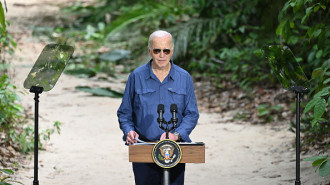Iraq eyes deal on Kurdistan oil exports within weeks
Iraq's oil minister expressed hope Wednesday his government can reach an agreement soon on the resumption of crude exports from the autonomous Kurdistan region to Turkey.
Ankara stopped importing oil from Iraqi Kurdistan in March after the International Chamber of Commerce ruled the federal government in Baghdad was the only entity authourised to manage exports.
Baghdad and the Kurdish authorities in Erbil signed last month a provisional agreement establishing an export mechanism that would be supervised by the federal government, but some issues remain unresolved.
"Regarding the agreement with Iraqi Kurdistan, within a week or two maximum we will reach a final agreement for the resumption of crude exports," Iraqi Oil Minister Hayan Abdel Ghani said, adding the indications were "positive".
Abdel Ghani said tests had been carried out on Turkish pipelines to avoid potential oil leaks, after a deadly and devastating earthquake hit southern Turkey on February 6.
Analysis: Iraq's prime minister says the country has ambitions to become a gas exporter.
— The New Arab (@The_NewArab) February 23, 2023
However, US-Iran political fighting in Iraq and internal political alignments might hinder achieving that goal
✍️ @danataibmenmy https://t.co/Bts9hZGGtp
Under the terms of the agreement announced in April, sales of Kurdish oil are to go through the Iraqi National Oil Company, and no longer exclusively through the authorities in Iraqi Kurdistan.
In addition, revenues from Kurdish exports are to be paid into an account managed by Arbil and supervised by Baghdad.
Ignoring opposition from the federal government, Kurdistan had long exported some 450,000 barrels per day to Turkey, paying Ankara far more than it should have for transit fees.
"We believe these additional sums should go to the Iraqi government," Abdel Ghani said.
Oil exports are a key source of revenue for both the federal and regional governments, and their management has long been a sensitive topic in relations.
Iraq, the second largest producer within the Organization of the Petroleum Exporting Countries (OPEC), exports an average of 3.3 million barrels per day, accounting for 90 percent of its revenue.







 Follow the Middle East's top stories in English at The New Arab on Google News
Follow the Middle East's top stories in English at The New Arab on Google News


